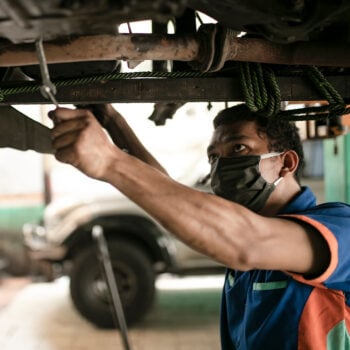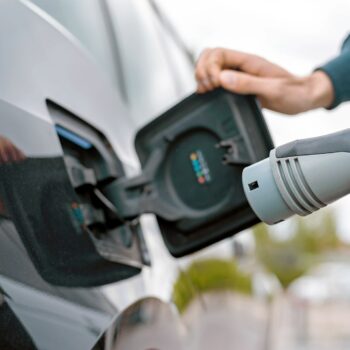It’s never been easier to buy and sell vehicles on the secondary market, thanks to websites like Craigslist. Private car sales between individuals can be a great way to find a deal but come with a high potential for financial and personal risk, made even worse by scammers pretending to be private buyers or sellers. The possibility of being ripped off makes it essential to familiarize yourself with common warning signs so you can take the proper steps to protect yourself and your property.
Common red flags when selling your car
When selling a vehicle online or in person, watch out for these warning signs:
- Fraudulent ACH transfers: An ACH transfer is when money moves between banks electronically. A fraudster may ask you for your account credentials to send money to your account. After a few days, the fraudster claims the transfer was unauthorized and attempts to keep your vehicle and your money.
- Fake mobile deposits: A criminal may ask to log into your mobile banking app to deposit money into your account. However, they will attempt to move money out of your account and into theirs.
- The promise of future payment: Dishonest car buyers may try to get you to float loan payments or wait until they get their next paycheck before paying you.
- Intentional overpayment: In this common scam, the dishonest buyer sends you a cashier’s check or money order for more than the agreed-upon price. Then, they’ll tell you they made a mistake and need you to refund the overage. In truth, the original money order was never legitimate, and any money you send them will be lost.
Tips for avoiding scams when selling your car
Scams abound in online markets, so it’s best to treat every message you receive with caution. Here are a few tips to keep in mind to protect yourself:
- Meet with buyers in person, preferably with someone you trust. When you speak with someone online, they could be on the other side of town or the other side of the world. Meeting in person ensures you’re dealing with a legitimate buyer. It’s best to meet in a public location and in the company of someone you trust. If possible, avoid meeting strangers alone.
- Only accept cash or certified checks. Cash is always the best option when selling your car, but if the total sale is over $2,000 it may be easier to accept a check. One of the best ways to do that is to meet at the buyer’s bank or credit union, have them cash their check and turn it into a cashier’s check made out to you.
- Consider an escrow account for out-of-area buyers. When selling to out-of-town or foreign buyers, an escrow account can reduce the risk of fraud. Only ship your vehicle to the buyer when you have confirmed their funds have cleared with the escrow service.
Common red flags when buying a car
Keep these warning signs in mind when purchasing a vehicle online or in-person:
- The price is below market value: If the price of a used vehicle seems too good to be true, it probably is. Fraudsters will often post pictures of rare or exotic cars at low prices, and when you contact them about the vehicle, they’ll say it’s located in another state or outside the country. They will attempt to get you to wire them money before shipping the car—which likely doesn’t exist.
- Fake escrow services: Though escrow services are a legitimate way to protect your money, fraudsters may attempt to trick you into using a fake escrow service. They’ll ask you to transfer money to the account before shipping the car, only to break the contract once the funds clear.
- Buying sight unseen: Dishonest car sellers may claim to be too busy or far away to meet you. They may even offer a fake inspection report to convince you the car is in working order—if it exists at all.
Tips for avoiding scams when buying a car
As a buyer, you’re a target for scam artists who want your cash. Keep your money safe by following these tips:
- Always have the car inspected. After you test drive the car yourself, get it inspected by a mechanic you trust. Additionally, bring someone you trust along when visiting the seller.
- Don’t trust sellers who say the online marketplace guarantees the sale. Craigslist, eBay, and other online marketplaces never guarantee sales, and neither do they ensure that the sellers are legitimate.
- Check for liens on the vehicle. A lien gives a bank, loan company, or someone else authority to claim the vehicle for an unpaid loan. You should always ensure that the vehicle you intend to buy has no liens on it or, if it does, that those liens are released before you purchase it. Verify that the owner’s driver’s license matches the information on the car’s title, then visit the local DMV to check for liens.
- Perform a vehicle history check. A vehicle history report may cost you a little money upfront, but it can alert you if the car you’re considering is a lemon. There are many great options for performing a history check on a vehicle. CarFax, Auto Check, and Vin Check Pro are all good options.
We’ve listed the most common vehicle sale scams here, but criminals are always looking for new ways to separate victims from their money. Remember, there’s never a good reason to share your banking credentials with another person, even if they’re trying to deposit money into your account. And, when you get around to actually buying a used car, make sure to check out our guide on how to safely buy a used car.
For more information on how to protect your finances, visit our security resource center.







